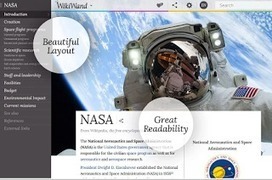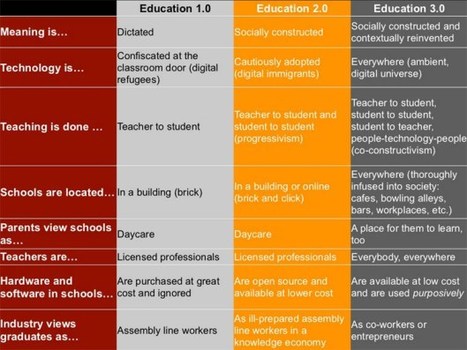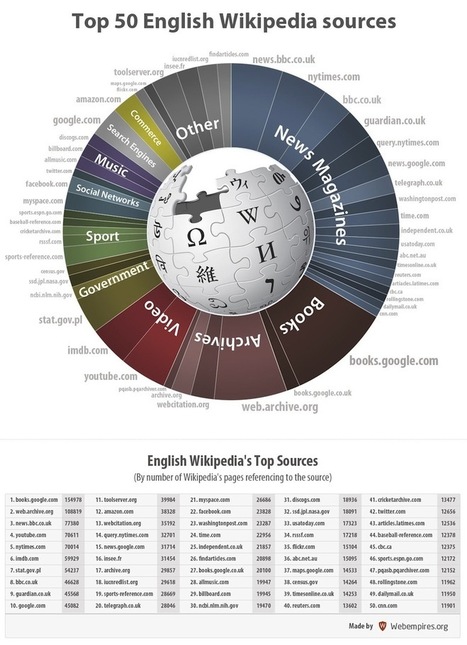
|
Rescooped by michel verstrepen from iGeneration - 21st Century Education (Pedagogy & Digital Innovation) |
Get Started for FREE
Sign up with Facebook Sign up with X
I don't have a Facebook or a X account
 Your new post is loading... Your new post is loading...
 Your new post is loading... Your new post is loading...
No comment yet.
Sign up to comment
Jeffrey Miles's curator insight,
March 17, 2014 11:01 PM
The idea of web 2.0, and education 3.0 is interesting to me... what will they be called in the future if they are to become the norm? |
Christine Bushong's curator insight,
May 7, 2013 7:57 AM
Dennis T OConnor's insight: Wikipedia is a solid way to begin a search on many topics IF you follow the backtrail to the sources listed in the article. As a school librarian, I agree with this advice. If you know little about a topic that you are researching, begin with Wikipedia to gather search terms and find sources of information from the citations. Wikipedia should not be cited as a source for academic research, but it can be a tool for finding sources that are. 
Sarah Rach-Sovich's curator insight,
May 7, 2013 9:06 AM
A great starting point - track it back to see where it might have come from. 
Lorena Swetnam's curator insight,
May 7, 2013 9:43 AM
Teach students and teachers how Wikipedia can be a starting point in the research process, not the final destination.
Jeffrey Miles's curator insight,
March 17, 2014 11:01 PM
The idea of web 2.0, and education 3.0 is interesting to me... what will they be called in the future if they are to become the norm? |













